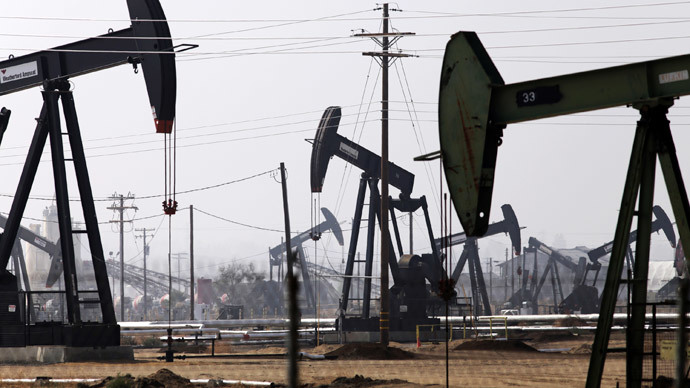‘Mideast unrest causes oil spike, but it’s only temporary’

The risk of political instability in Saudi Arabia always goes along with a spike in the oil price as it has been the largest producer of crude oil in the world, Amir Handjani, lead director at RAK Petroleum, told RT.
Saudi Arabia's strikes in Yemen have been driving the price of oil up.
RT:Yemen can be hardly called a major oil exporting country, why is the oil price going up then?
Amir Handjani: It is just a temporary spike. We saw this over the summer with the ISIS push in Iraq. Any time there is instability in the region the oil price jumps specifically here, this is Saudi’s Arabia neighbor, it is very unstable; it has been unstable for a long time. Saudi Arabia has been the largest producer of crude in the world. Any time there is a risk of instability in Saudi Arabia - as there is now – although ever so slight, you’ll see a spike in the oil price.
RT:Are you expecting a farther spike in the price as the unrest continues in Yemen?
READ MORE: Oil surges 6% after Saudi launches military airstrikes in Yemen
AH: It’s doubtful. You’ve probably see even today the price of oil has come down just a little bit, Brent the benchmark has come down by a couple of dollars. This is a very contained situation. If it starts spreading beyond Yemen’s borders, there could be a wholly different matter. But right now we’ll just see a temporary spike and I see that price going back down. There is about three million barrels of extra crude in the market. There is glut of oil in the market. We’re just about to have a deal with Iran on their nuclear program. They’re going to be adding crude at the market. So the price of oil is going to be depressed for some time.
RT:If indeed sanctions are lifted on Iran, and Iran can stop pumping out oil again, do you think the prices will go down and further create perhaps more global instability?
AH: For the crude price - that is for sure. All indications are with Iran’s crude going back on line, the price will be further depressed.

RT:Some experts say that this conflict is essentially profitable for the Gulf countries as their main source of income is oil exports. How do you read that?
AH: I don’t put much stock into that worry because most of the Gulf countries are awash in cash, they have large reserves. I think the conflict in Yemen spooks them because of the political instability that it is on their borders. You have Saudi Arabia, you have Oman, those aren’t very far from the Gulf. So any type of instability that can threaten the stability of the Gulf monarchies is much more of a risk for them than a jump in the price of oil.
RT:Some articles are saying that there are countries around the world that are building their reserves of oil to such a point now because oil is so affordable, so when countries reach that maximum storage capacity, oil prices could even go further down to $20 of barrel. What do you think of that?
AH: Downfall is certainly possible. We’ve never had so much crude on the market over the last decade and the half as we do today. With Iran’s nuclear program deal imminent you are going to have more crude on the market. But what goes down will come back up, eventually this will correct itself and oil prices will bounce back up whether that is going to be the next 12- 18 months, it doesn’t look like that is a reasonable assertion. However, with the instability in the Gulf, with Iran, Syria, Iraq, Saudi Arabia, all this variables coming into play the price of oil could bounce back up just by the political instability and the unrest in the region.
The statements, views and opinions expressed in this column are solely those of the author and do not necessarily represent those of RT.
The statements, views and opinions expressed in this column are solely those of the author and do not necessarily represent those of RT.












